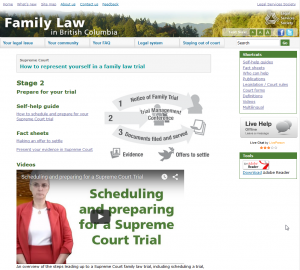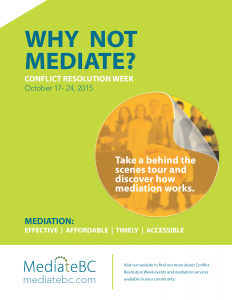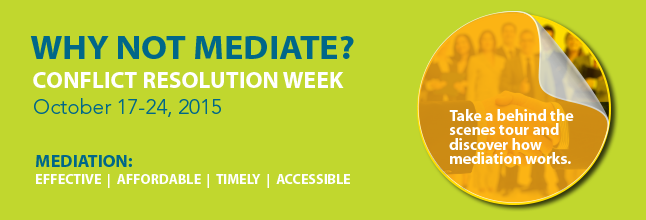Help for people with family law issues who have to represent themselves in BC Supreme Court
By Winnifred Assmann and Nate Prosser
Legal Services Society
Representing yourself is intimidating. It’s also a scenario that is becoming
more common. To help people in this situation, the Legal Services Society has created a new set of online resources to help people navigate Supreme Court trials and hearings.
These include a new self-help guide on how to schedule and prepare for a Supreme Court trial, plus step-by-step guides to walk users through completing the forms required for Supreme Court trials and Chambers hearings. All these resources walk you through the trial process.
Stage 1: Before you schedule a trial
A new fact sheet – Discovery — Sharing information with the other party – explains what discovery is, why you want to share information, and other ways to get information, like a pre-trial examination of witnesses.
Stage 2: Prepare for your trial
How to schedule and prepare for your Supreme Court trial includes a timeline of significant deadlines and links to videos that set out the court process.
Accompanying this guide are two fact sheets, Making an offer to settle, which explains how to resolve your issue before going to court, and Present your evidence in Supreme Court, which explains the different types of evidence and how to present them.
Videos, produced with the help of People’s Law School, explain topics including: scheduling and preparing for a Supreme Court trial, giving testimony, questioning a witness, and using documents during a trial.
Stage 3: At your trial and after
The new guide, How to draft a Supreme Court order, walks through how to draft a Supreme Court order if you’re a party in a family law case. To also help with this, LSS created samples of some of the most common court orders.
Other resources include: fact sheets on coping with the court process, tips for conducting your Supreme Court trial, and what happens at a Supreme Court trial. LSS also compiled sample questions that can be asked of witnesses at a Supreme Court trial.
Finally, a new video gives you an overview of Supreme Court, tells you what to bring, shows you the inside of a courtroom, and describes what everyone in the courtroom does.
Drafting affidavits
The final set of resources help you write an affidavit. This includes a self-help guide, samples, and tips.
Those are just some of the new resources LSS has made to help people representing themselves in a family trial in Supreme Court. A full list of links can be found starting at How to represent yourself in a Supreme Court family law trial on the Family Law in BC website.
 |
 |
 |
 |
|---|



